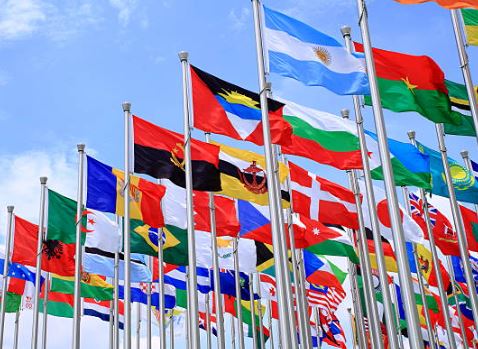The Global Electoral Landscape of 2024: A Pivotal Year for Democracy

In 2024, the world’s political stage is set to experience significant shifts as over 60 countries gear up for elections. This record-breaking number of elections is not just a statistical highlight; it’s a litmus test for democracy at a time when global politics is at a crossroads.
Africa’s Political Crossroads: South Africa, Mali, and Chad
South Africa, a nation grappling with economic challenges and inequality under the ANC’s rule, is poised for a crucial election. The ANC’s close ties with the BRICS alliance, including China and Russia, underscore the global economic implications of this vote. However, it’s not just about economic alliances; the election could be a turning point in addressing the nation’s deep-rooted issues of stagnation and inequality.
Similarly, Mali and Chad, both under military rule since recent coups, have announced presidential elections. The successful transition to civilian rule in these nations could set a precedent for other African countries like Niger, Gabon, and Sudan, which are also navigating post-coup politics. However, delays or failures in these elections could undermine the efforts of regional organizations like ECOWAS and the African Union in restoring democratic governance.
Eastern Europe and the Middle East: Belarus, Russia, and Iran
In Belarus, President Alexander Lukashenko’s anticipated attempt to consolidate power in the upcoming parliamentary vote, following a contested 2020 presidential election, has heightened concerns about authoritarianism. This, combined with the impending presidential election in Russia, where President Vladimir Putin is expected to retain power amidst potential protests, signifies a critical period for Eastern European politics.
Iran’s legislative elections are also anticipated to trigger protests, although they are unlikely to lead to immediate policy changes. These elections occur amidst a backdrop of international sanctions and regional conflicts, notably Iran’s involvement in Middle Eastern affairs. The response to dissent and the handling of these protests could further strain relations with Western countries.
The Implications of Global Elections
The outcomes of these elections are crucial. They are not just about who gets elected; they represent the broader political currents of our time – the struggle for democracy, the response to authoritarianism, and the fight against economic inequality and mismanagement.
In a world still grappling with the ramifications of the COVID-19 pandemic, climate change, and regional conflicts, these elections are more than a routine democratic exercise. They are a reflection of the people’s will in challenging times, a gauge of democratic resilience, and potentially, a catalyst for change in the global political landscape.
As we observe these elections unfold, the importance of international vigilance and support for democratic processes cannot be overstated. The year 2024 is not just another year in the calendar; it’s a year that could reshape the contours of global politics.





